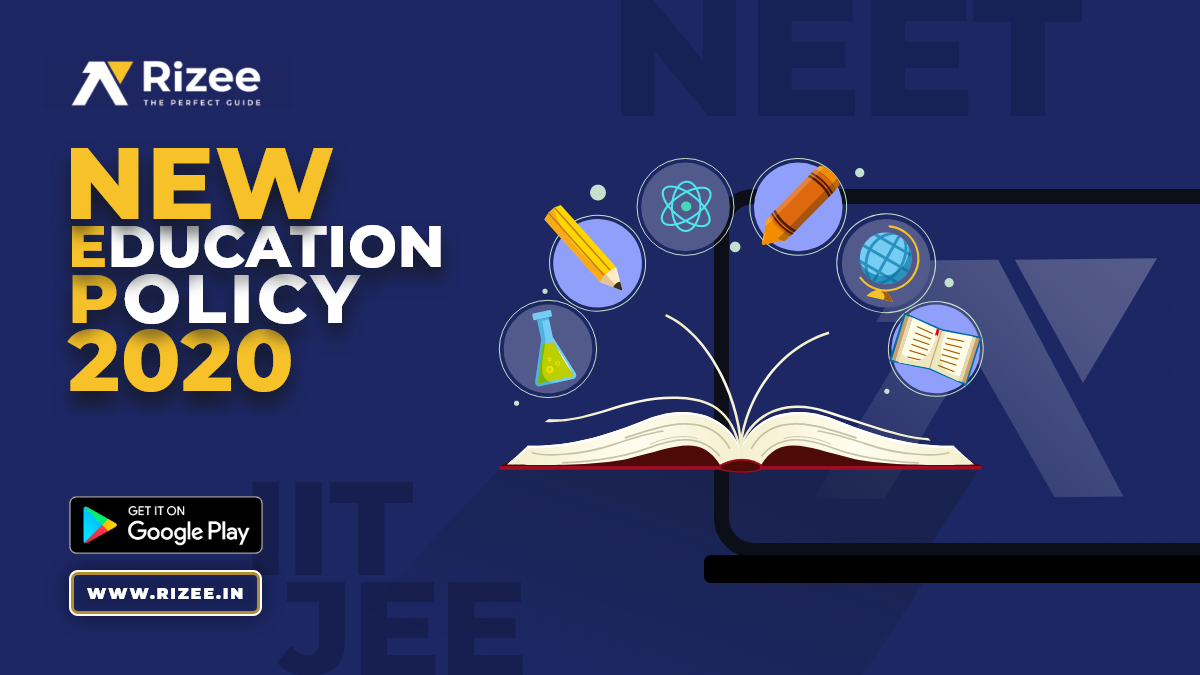What is the New Education Policy 2020? – Key Features

After more than three decades since the last modification to India’s National Education Policy, the Union Cabinet approved the National Education Policy 2020, aiming to introduce major changes in the Indian education system.
Let’s take a look at 5 major changes proposed in school and higher education:
1. Schooling from the age of 3 years:
The New Education Policy brings the uncovered age group of 3-6 years under school curriculum by expanding the age group 6 -14 years of mandatory schooling to 3-18 years of schooling. The new system will have 12 years of schooling with three years of Anganwadi/ pre-schooling. The current 10+2 system to be replaced by a new 5+3+3+4 curricular structure corresponding to ages 3-8, 8-11, 11-14, and 14-18 years respectively with an emphasis on Early Childhood Care and Education (ECCE ).
2. Mother tongue as medium of instruction:
The NEP puts focus on students’ mother tongue as the medium of instruction up to at least Grade 5. It sticks to the ‘three language formula’ but also mandates that no language would be imposed on anyone.
“Education is a concurrent subject. Which is why the policy clearly states that kids will be taught in their mother tongue or regional language ‘wherever possible’,” the officer said.
The policy document emphasises that children learn and grasp non-trivial concepts more quickly in their home language. This will be followed by both public and private schools.
3. NO UGC, AICTE, NCTE:
Higher Education Commission of India (HECI) will function as the single umbrella body for the entire higher education, excluding medical and legal education. Public and private higher education institutions will be governed by the same set of norms for regulation, accreditation and academic standards. HECI will be having four independent verticals namely,
- National Higher Education Regulatory Council (NHERC) for Regulation
- General Education Council (GEC) for Standard Setting
- Higher Education Grants Council (HEGC) for Funding
- National Accreditation Council (NAC) for Accreditation
Government will phase out the affiliation of colleges in 15 years and a stage-wise mechanism is to be established for granting graded autonomy to colleges.
4. Science, arts, commerce gets blurred
Under NEP 2020, there will be Emphasis on Foundational Literacy and Numeracy, no rigid separation between academic streams, extracurricular, vocational streams in schools. Students can select subjects of their liking across the streams. Assessment will be reformed with 360 degree Holistic Progress Card, tracking Student Progress for achieving Learning Outcomes in the subjects they choose. Vocational Education to start from Class 6 with Internships.
5. FYUP Programme Returns & No More Dropouts
The NEP proposes holistic undergraduate education with a flexible curriculum of either 3 or 4 years with multiple exit options and appropriate certification within this period. Colleges will have to give a certificate after completing 1 year in a discipline or field including vocational and professional areas, a diploma after 2 years of study, or a Bachelor’s degree after a 3-year programe.
The Academic Bank of Credits is going to be established by the government for digitally storing academic credits and facilitating transfer of credits so that these can be counted towards the final degree earned.
The New Education Policy will bring in reforms in the Education System in India. The future is technology driven. The Modernized Education system will enable the students from Preprimary School to Higher Secondary School to go digital. Also, the Central Government designed the curriculum to build a Stress-free Education system, and parallely RIZEE inculcated the same ideology to help JEE & NEET Aspirants to reach their Goal with a stress-free & Student friendly practice. The Strategic Planning, compendious study material, Practice test along with Performance Analysis is a Boon to excel in the academics with minimum efforts.